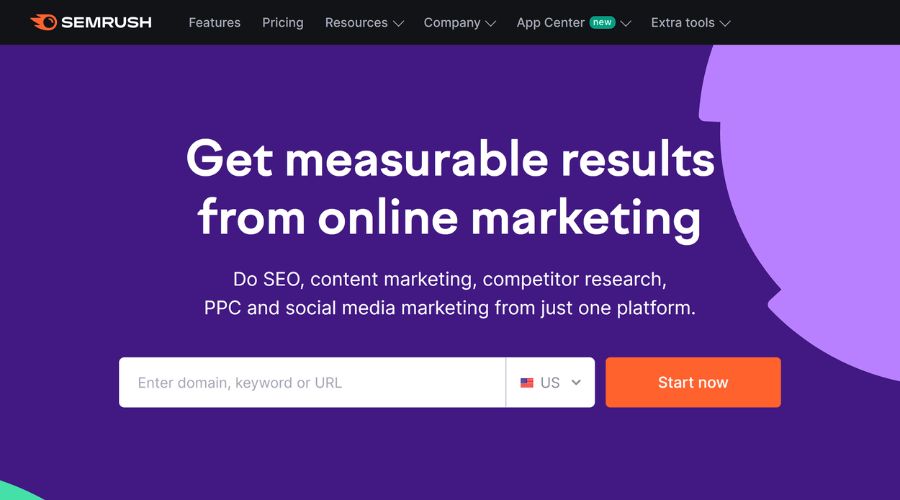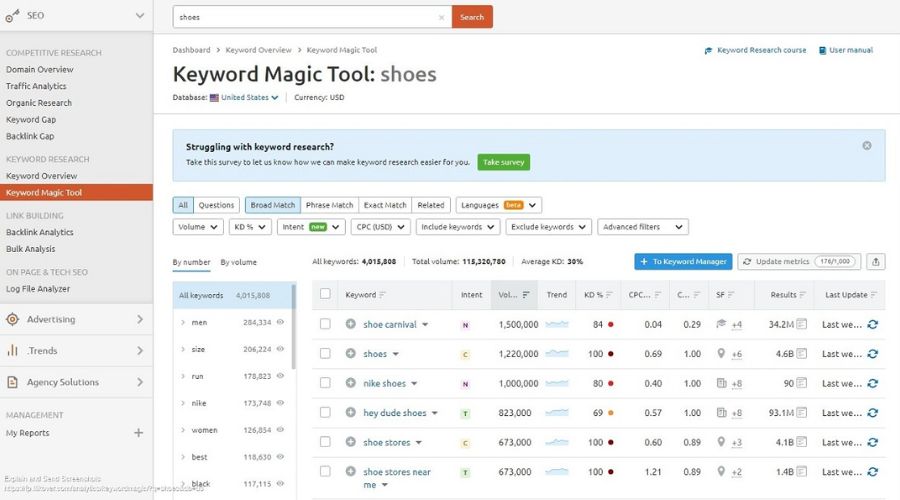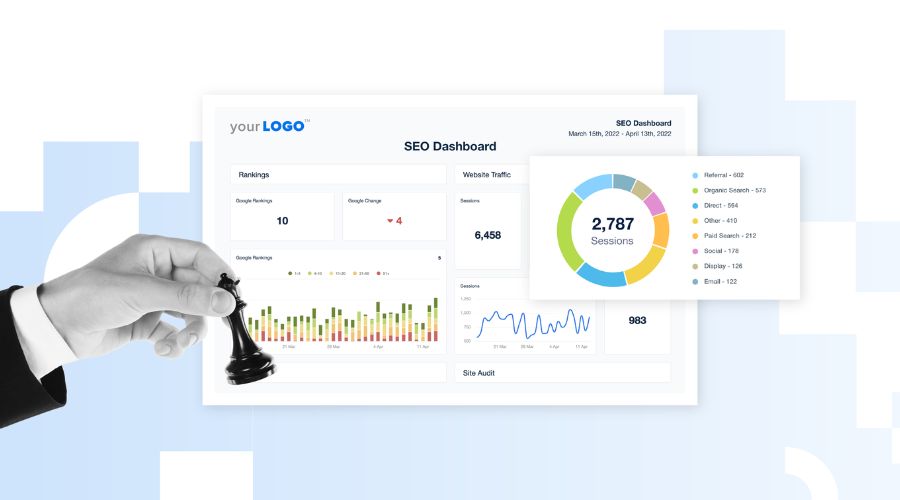Travel Keyword Research with SEMrush: Find the Best SEO Keywords for Destinations
In a competitive digital landscape, travel bloggers, agencies, and businesses need an effective SEO strategy to stand out. One of the key factors in driving organic traffic is choosing the right keywords. Travel keyword research with SEMrush is a powerful way to discover high-ranking search terms that attract the right audience. By leveraging SEMrush’s advanced tools, you can optimize your travel content to improve visibility and engagement.
This guide will walk you through a step-by-step process on how to find the best SEO keywords for travel destinations using SEMrush.
Whether you’re a seasoned travel blogger or just starting out, this guide will walk you through the essential steps for travel blog monetization with SEMrush using its Affiliate and PPC tools. If you are also someone who writes blogs for your clients, this guide is also for you. Make it lucrative by monetizing your travel blogs!
Table of Contents
- Understanding the Importance of Travel Keyword Research with SEMrush
- Setting Up SEMrush for Destination SEO
- Using the Keyword Magic Tool for Travel Keyword Research
- Analyzing Keyword Metrics for Travel SEO Success
- Finding Low-Competition and High-Intent Keywords
- Organizing and Implementing Keywords for Maximum Impact

Understanding the Importance of Travel Keyword Research with SEMrush
SEO is the backbone of any travel website, and choosing the right keywords ensures your content reaches travelers searching for specific destinations. Travel keyword research with SEMrush helps identify trending search terms, seasonal variations, and long-tail keywords that drive conversions. Keywords and secondary keywords are one of the important aspects of boosting your travel blog on your website or on the website of your clients. These keywords are particular search words that are widely searched on the internet.
Setting Up SEMrush for Destination SEO
One of the first steps you need to do before making the next big step. Before diving into keyword research, you need an SEMrush account. Follow these steps:
Log in to your SEMrush dashboard.
Select “Keyword Research” from the main menu.
Choose the target region or language for destination-based searches.
By setting up your account correctly, you’ll ensure that your destination SEO strategy is aligned with your audience’s search behavior.
- High commission rates per referral
- A reliable tracking system
- Access to promotional materials to increase conversions


Using the Keyword Magic Tool for Travel Keyword Research
The Keyword Magic Tool in SEMrush is a game-changer for travel bloggers and marketers. This tool effectively finds the exact keywords or relevant keywords you need to boost your travel blog. Here’s how to use it:
Search through the Keyword Magic Tool in the Keyword Research section.
Enter the related keywords that are popular among travel blogs or websites, such as “best places to visit in Africa” or “honeymoon destinations.”
Review the suggested keywords and filter them by volume, difficulty, and intent.
This feature helps you uncover valuable keywords that enhance your travel keyword research with the SEMrush process.
Analyzing Keyword Metrics for Travel SEO Success
This is one of the important steps to keep in mind when you are analyzing the keyword that is relevant to you. The keywords search can be vast but for a successful keyword result, this step is crucial. Once you have a list of potential keywords, analyze the following metrics:
Search Volume: High-volume keywords indicate popular searches.
Keyword Difficulty (KD%): Lower difficulty scores are easier to rank for.
CPC (Cost Per Click): Helps determine commercial intent.
SERP Features: Identify if featured snippets or local packs are available.
By evaluating these metrics, you can prioritize keywords that offer the best ranking potential.


Finding Low-Competition and High-Intent Keywords
Since the market demand is quite competitive, having a keyword that is not unique but also brings in more traffic is crucial. To stand out in travel SEO, targeting low-competition yet high-intent keywords is crucial. Use SEMrush’s filters to:
Identify long-tail keywords like “hidden gems in Italy.”
Focus on transactional keywords (e.g., “cheap flights to Bali”).
Explore question-based queries such as “where to stay in Tokyo.”
Whatever website you choose, make sure to incorporate these keywords into your travel content to increase the chances of ranking higher in search results. It helps you to bring is more traffic who might be looking for the same content in this field.
- Travel-related SEO guides
- Case studies on successful travel bloggers
- Resource pages with recommended tools
Organizing and Implementing Keywords for Maximum Impact
After finalizing your keyword list, follow these implementation strategies:
Blog Titles & Headings: Use primary keywords in H1 and H2 tags.
Meta Descriptions: Include relevant destination-related keywords.
Image Alt Texts: Optimize visuals with descriptive keywords.
Internal Linking: Link relevant pages to enhance SEO value.
- High commission rates per referral
- A reliable tracking system
- Access to promotional materials to increase conversions

A well-structured keyword strategy ensures that your travel keyword research with SEMrush translates into higher search rankings. Mastering travel keyword research with SEMrush can significantly improve your website’s search rankings and attract more travelers to your content. By leveraging SEMrush’s Keyword Magic Tool, analyzing search trends, and implementing strategic keywords, you can optimize your travel SEO efforts effectively. Start exploring SEMrush today and unlock the full potential of destination-based SEO!







